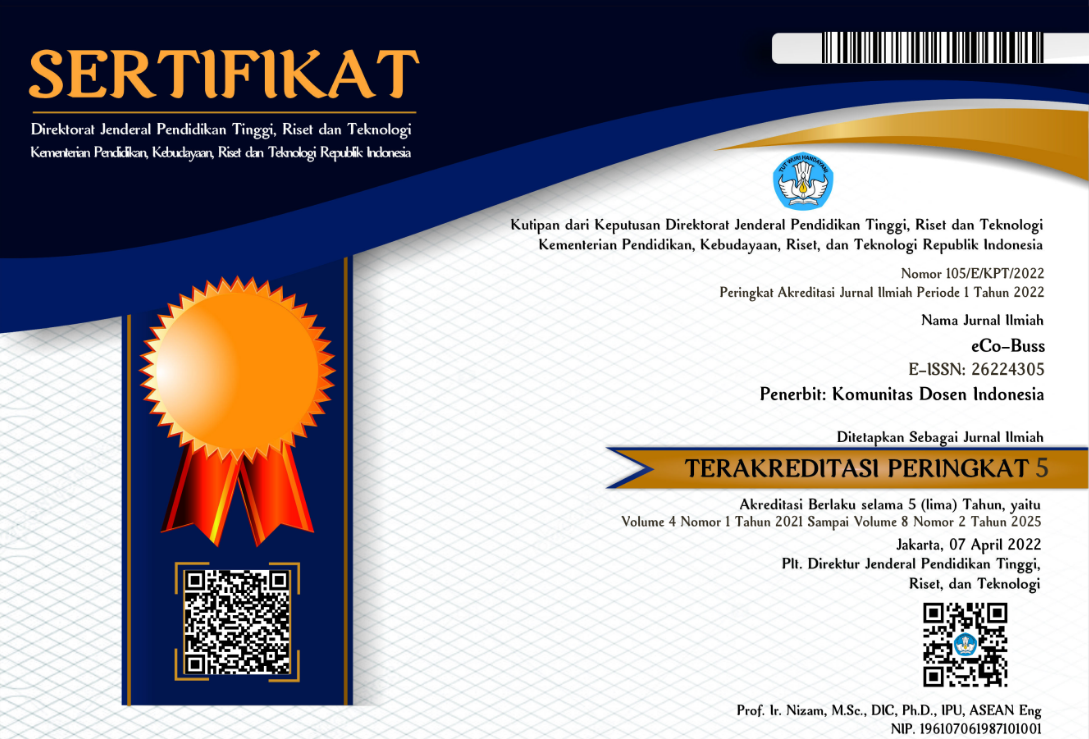Pengaruh Motivasi, Kepuasan Kerja Dan Komitmen Organisasional Terhadap Organizational Citizenship Behavior Di PT Sentosa Prima Utama
DOI:
https://doi.org/10.32877/eb.v6i3.643
Keywords:
Kepuasan Kerja, Komitmen Organisasional, Motivasi, Organizational Citizenship Behavior, PT Sentosa Prima Utama, Sumber Daya Manusia
Abstract
To improve results or exhibit exemplary organizational citizenship behavior while at work, PT Sentosa Prima Utama naturally expects that every employee would be engaged, satisfied in his job, and dedicated to the success of the business. The study's goal is to ascertain whether factors like intrinsic drive, job contentment, and loyalty to the company have any bearing on the level of corporate citizenship practiced by PT Sentosa Prima Utama's employees. The population is the number of security officers at PT Sentosa Prima Utama 342, and the sample size 184 is determined using the slovin formula method, primary data obtained through questionnaires, interviews, and observations, secondary data obtained through journal articles; data related to research problems. Data may be gathered from a variety of different places, including surveys, interviews, and observations conducted by researchers, and papers published in scholarly journals. The study's findings suggested that elements including motivation, job happiness, and organizational commitment can have both a partial and simultaneous impact on PT Sentosa Prima Utama employees' demonstrations of corporate citizenship.
Downloads
Downloads
Published
How to Cite
Issue
Section
License
Copyright (c) 2022 eCo-Buss

This work is licensed under a Creative Commons Attribution-ShareAlike 4.0 International License.






 DOI :
DOI :
 Abstract views: 192
/
Abstract views: 192
/  PDF downloads: 361
PDF downloads: 361

